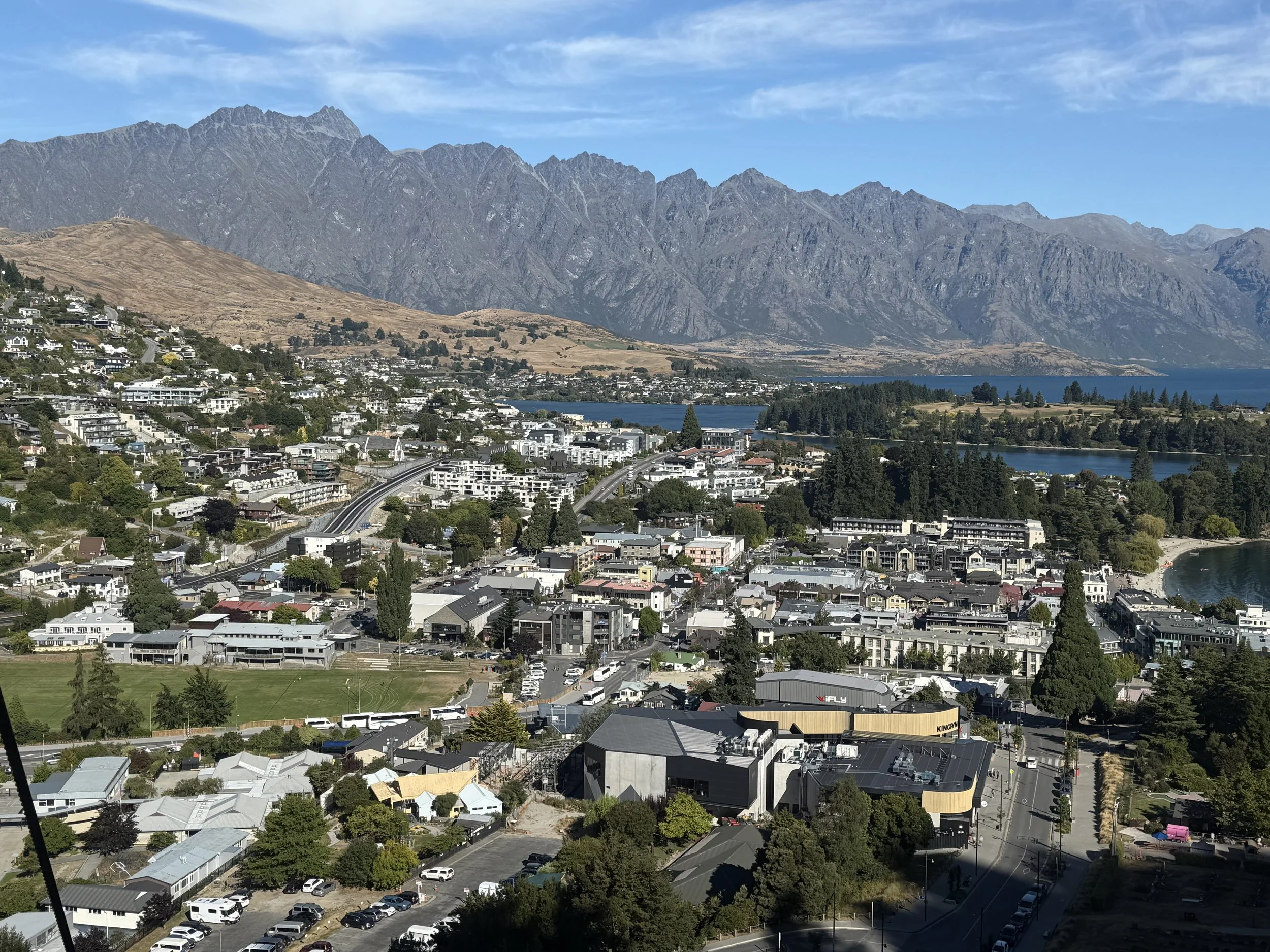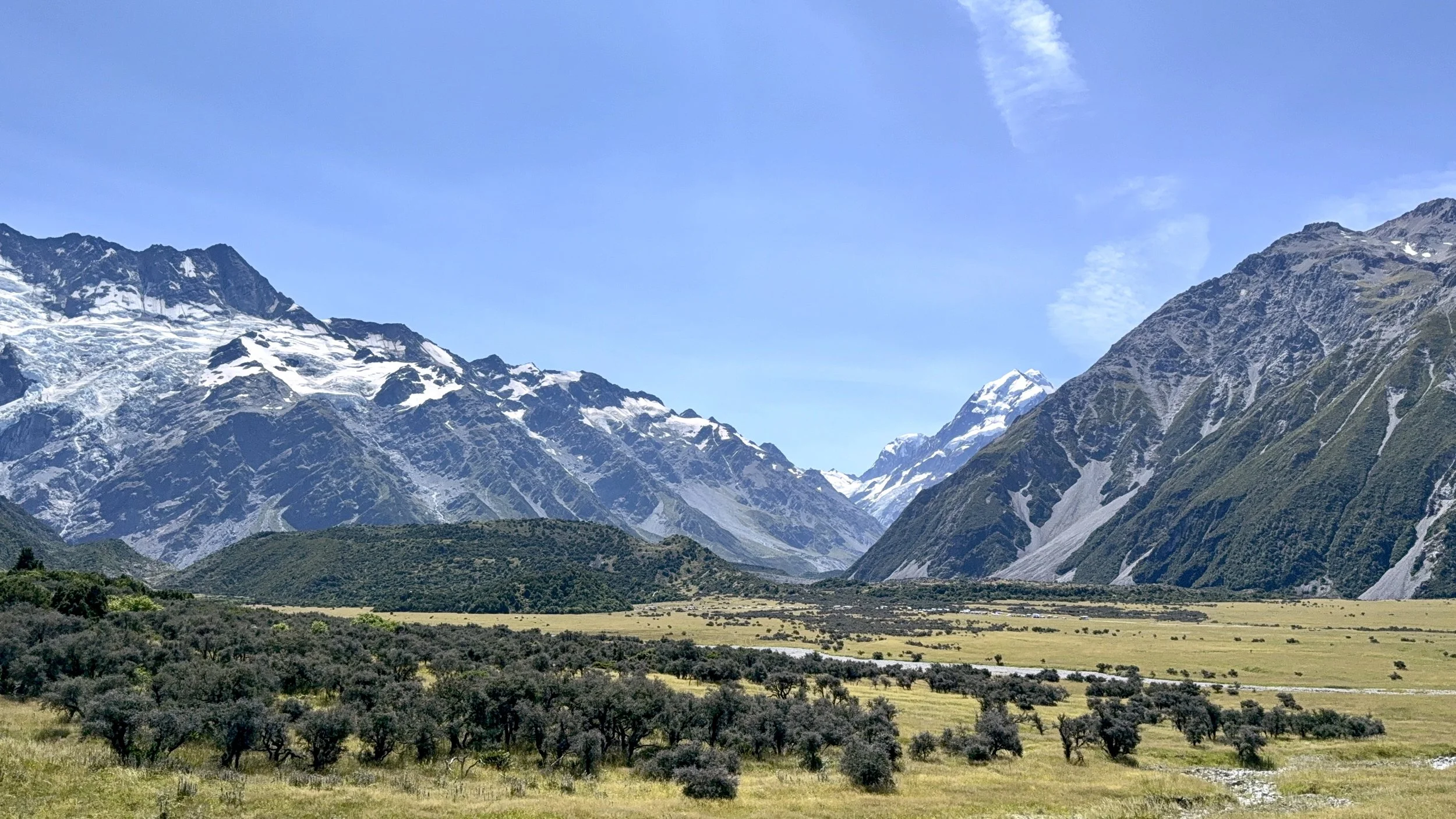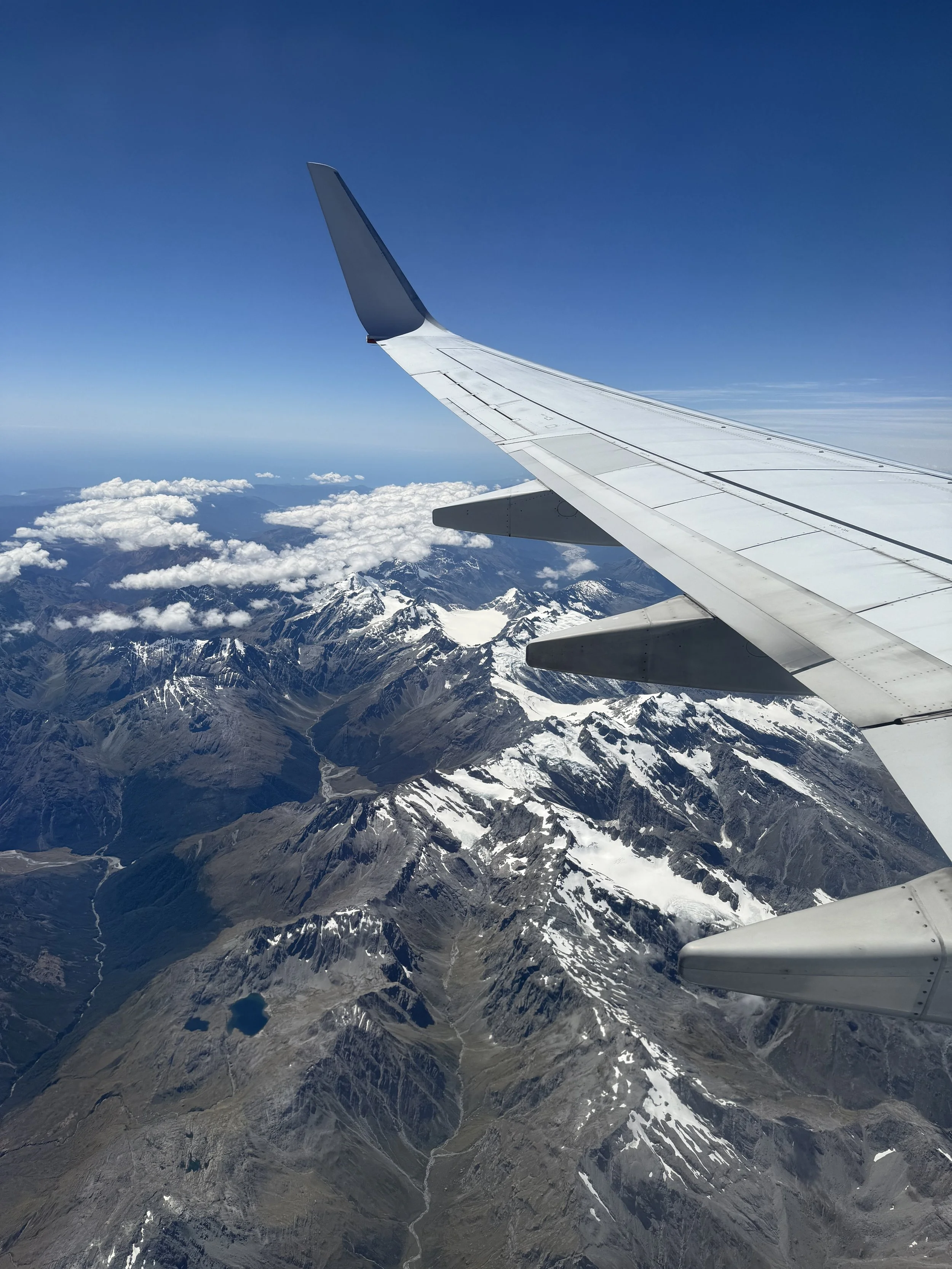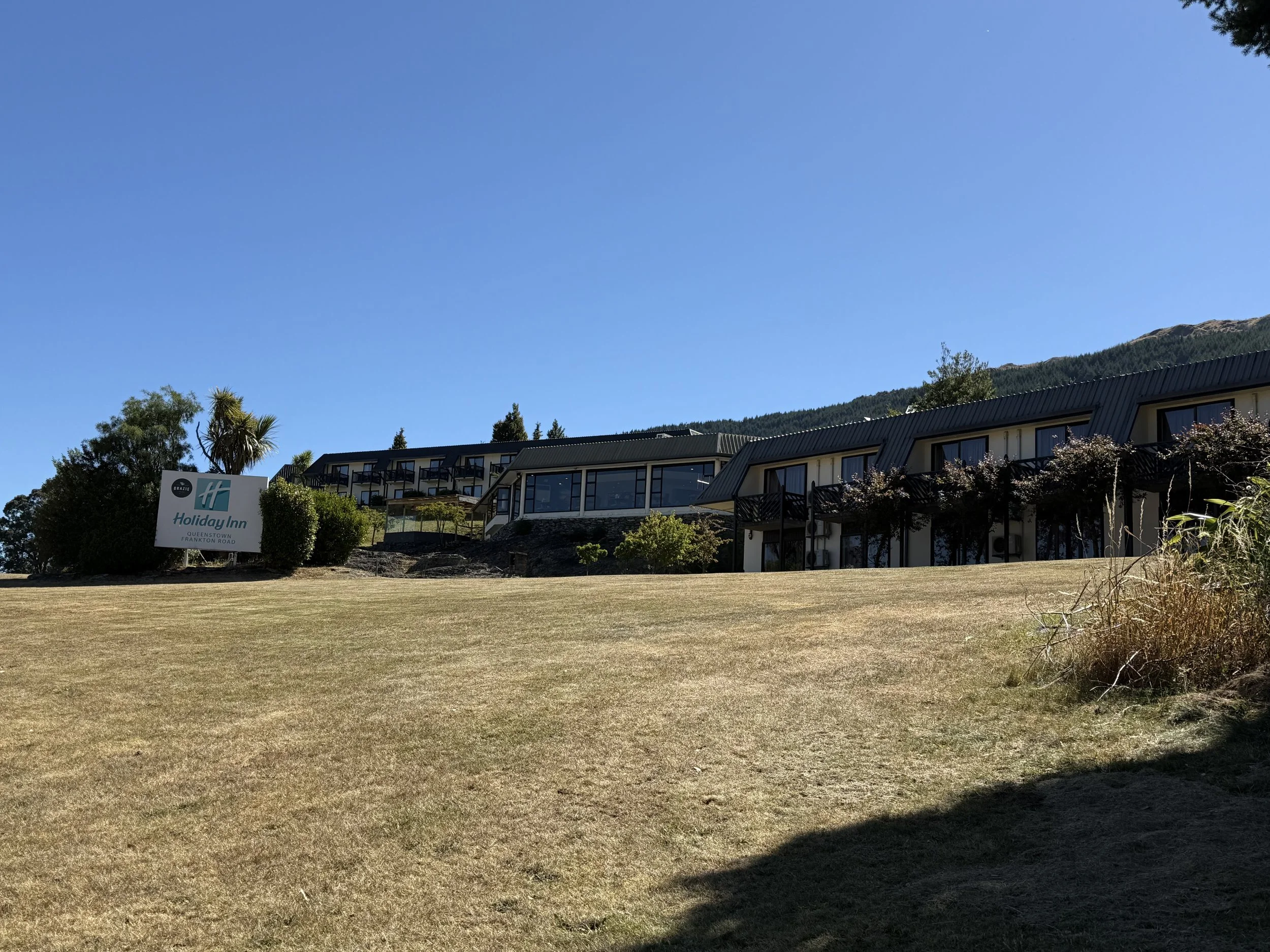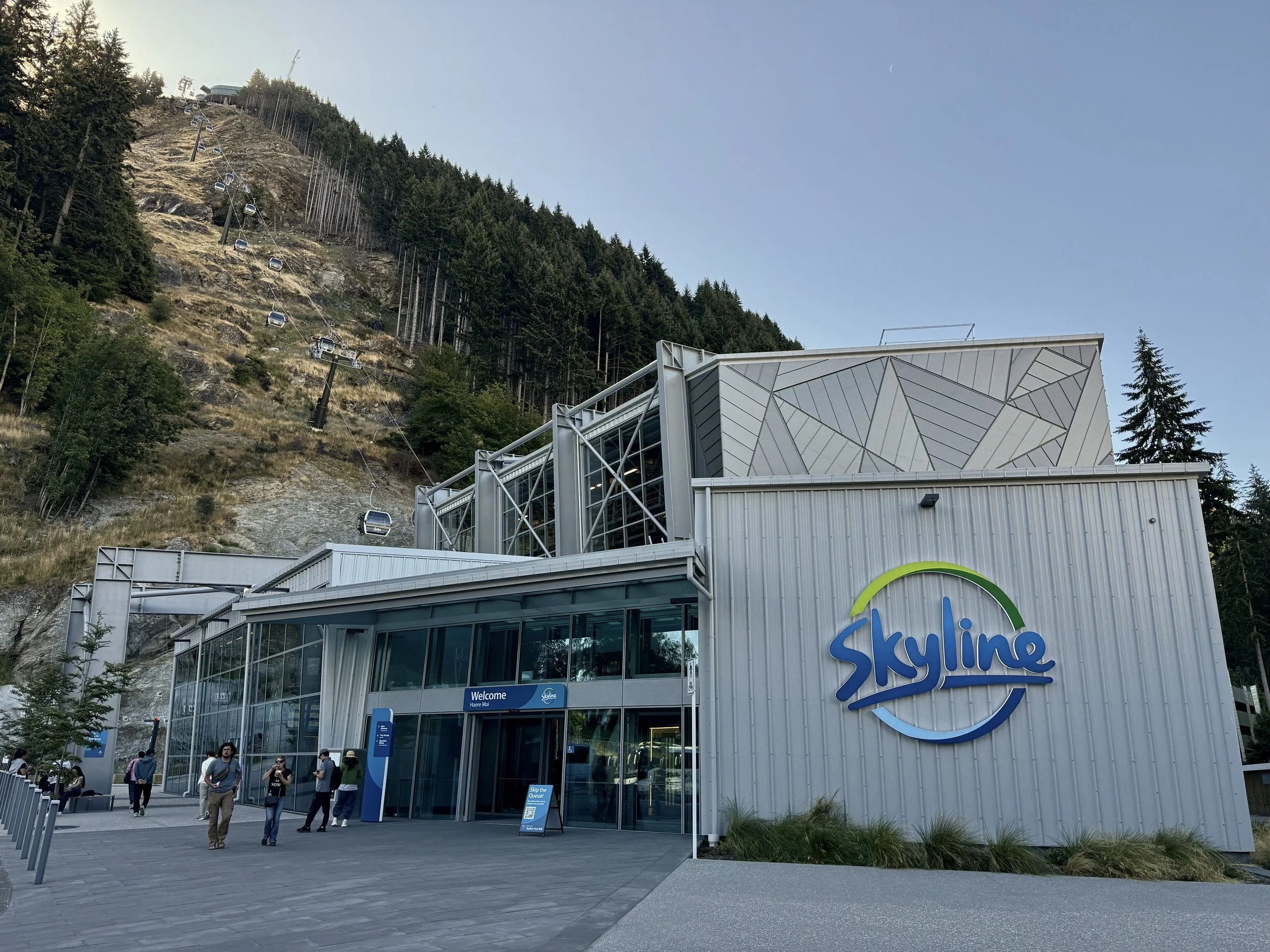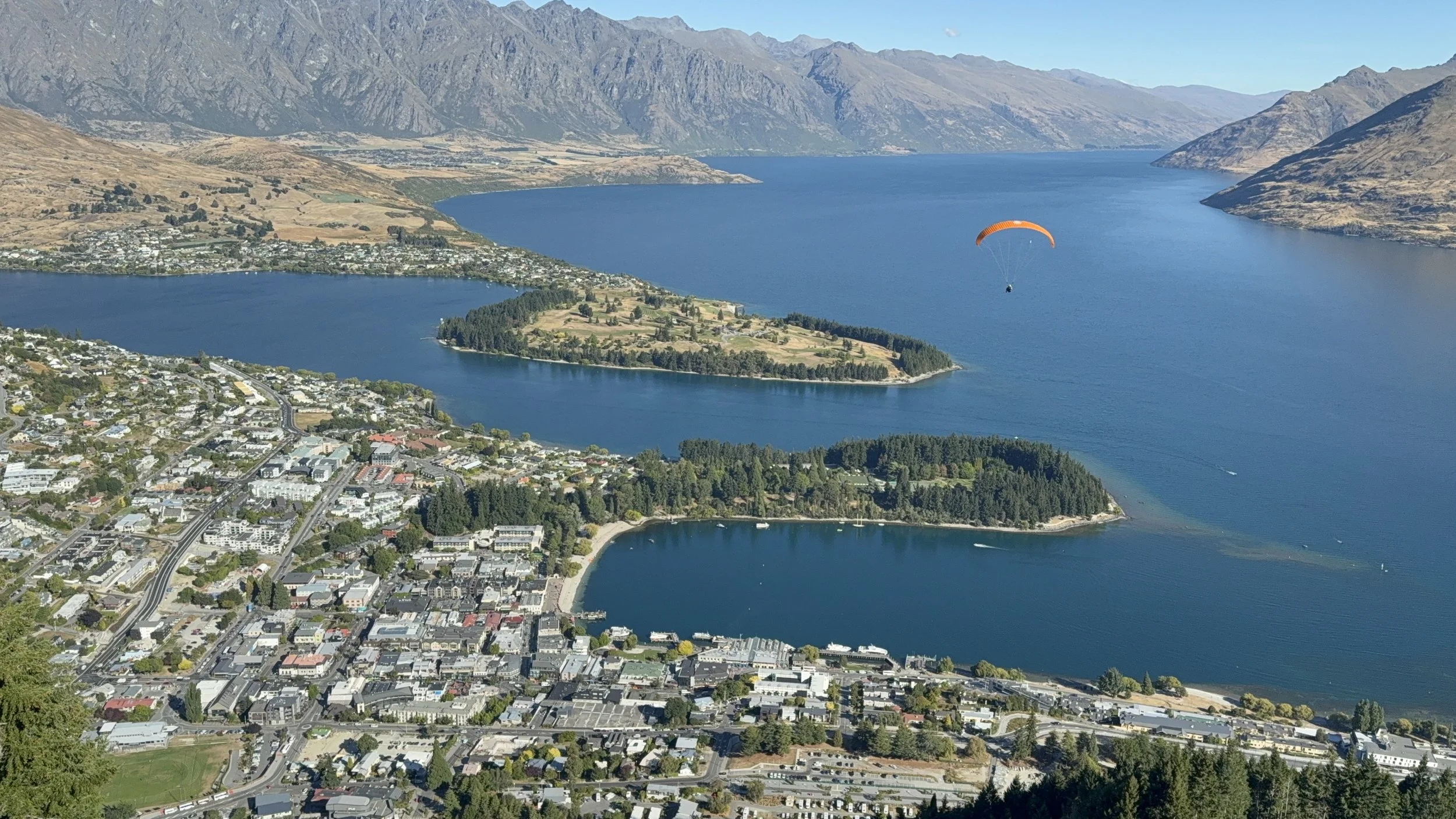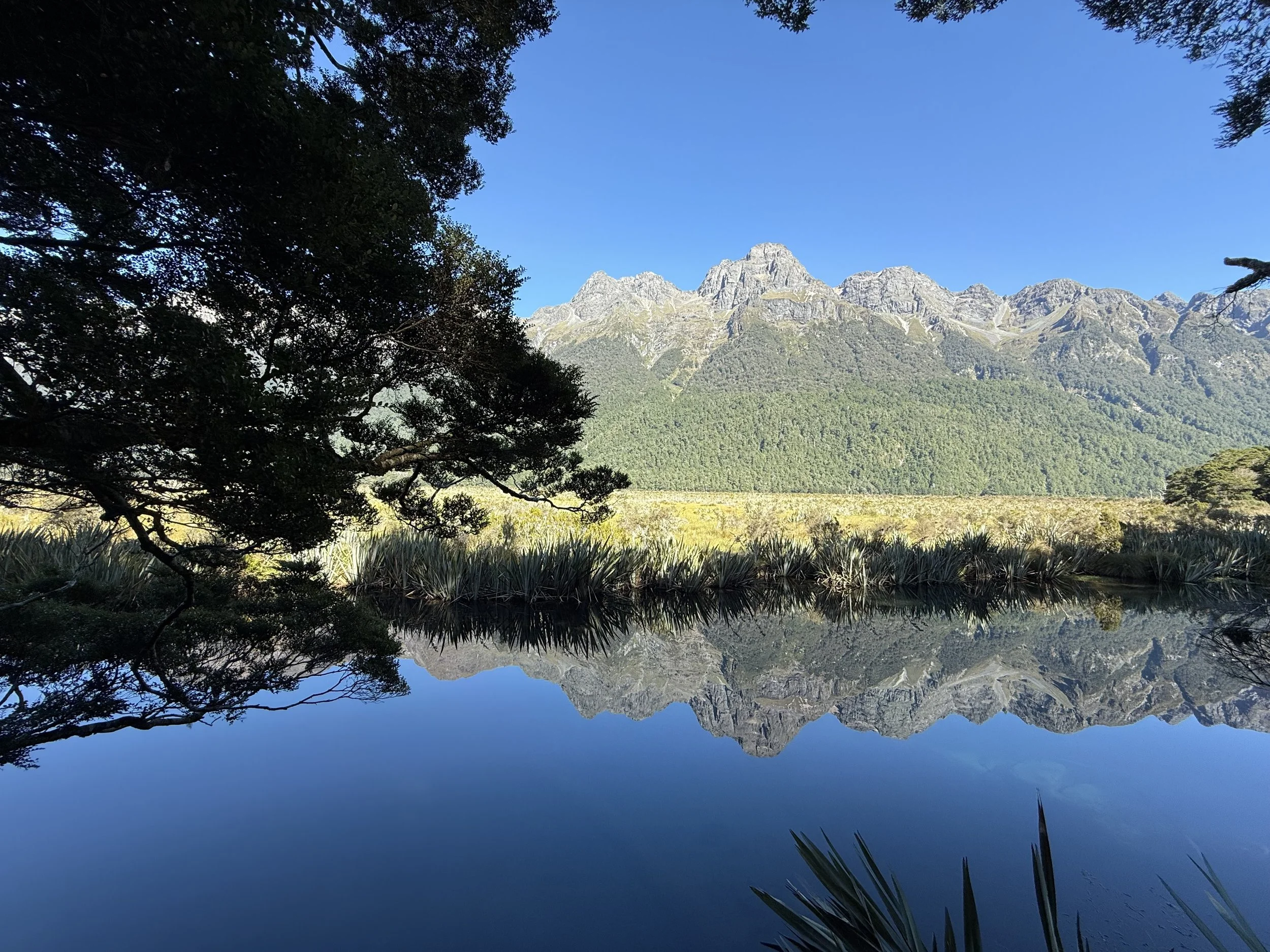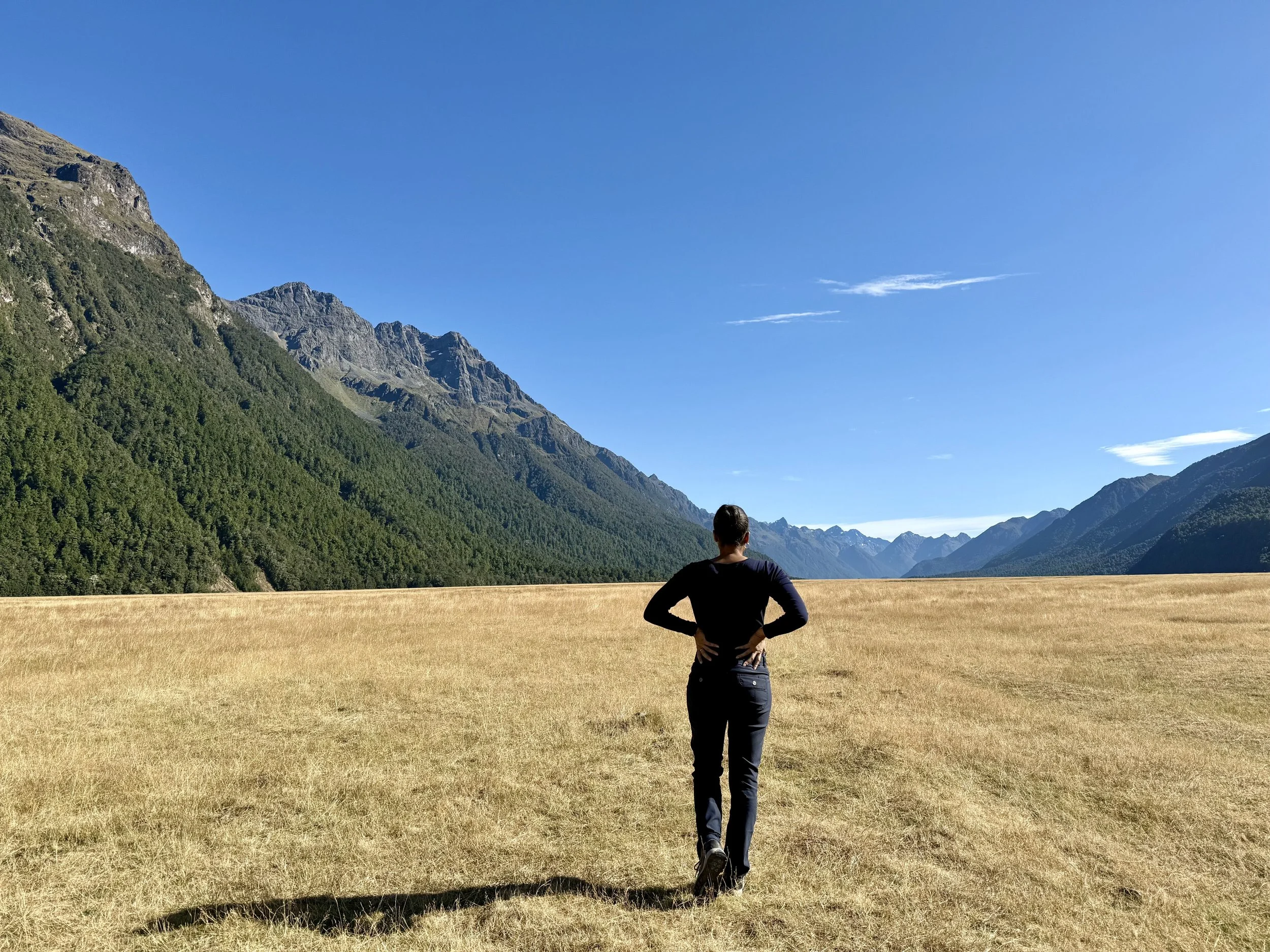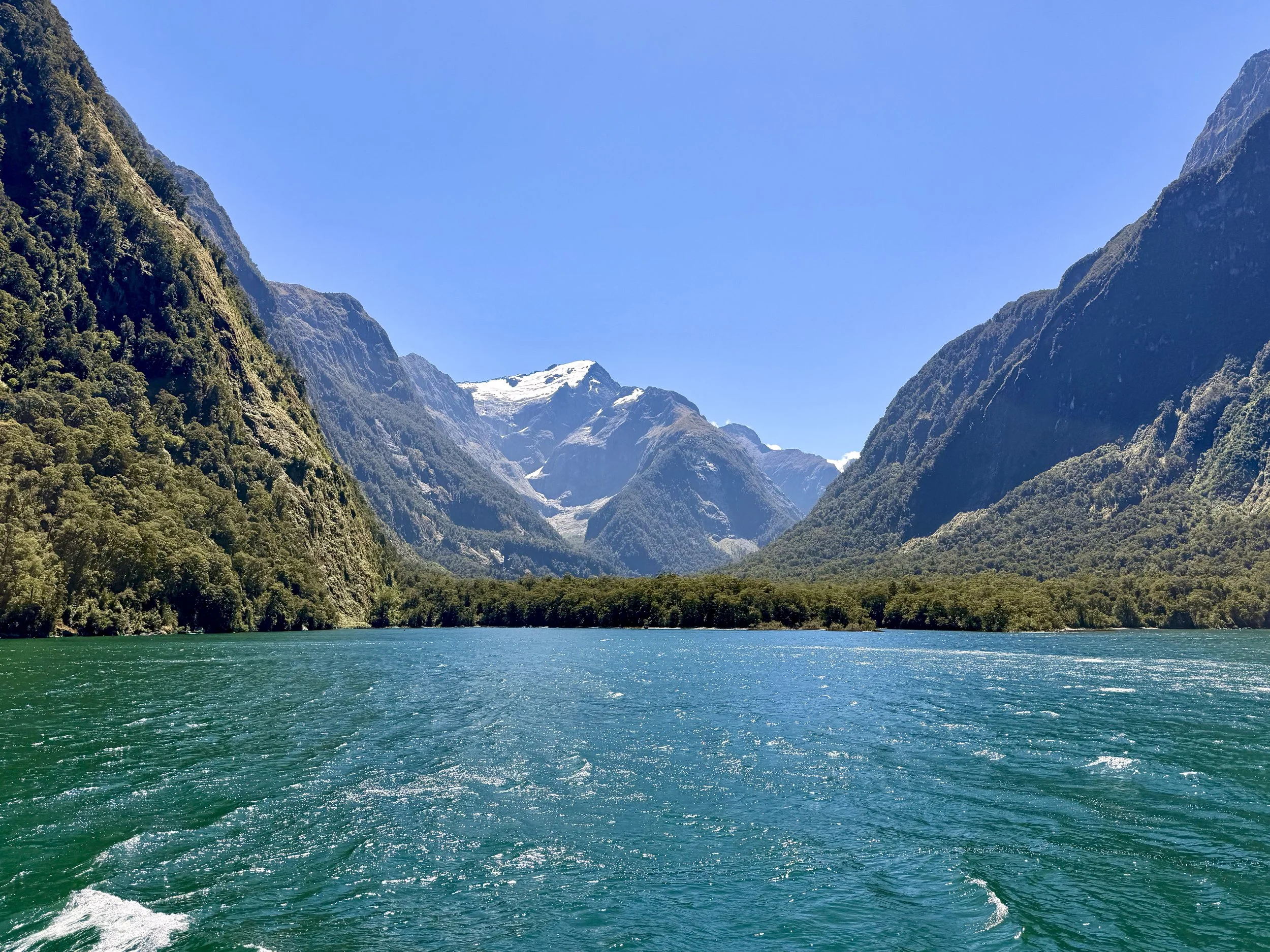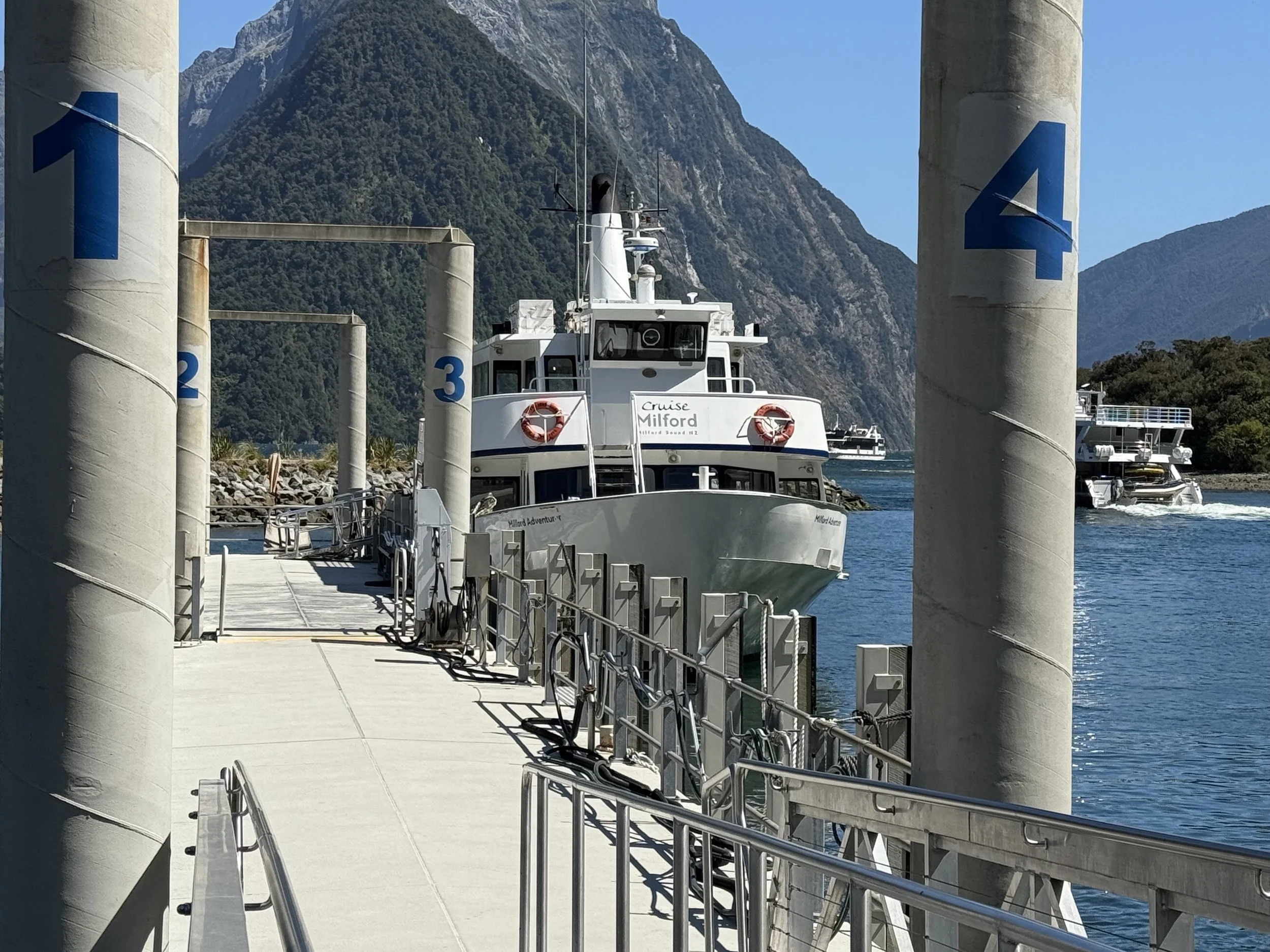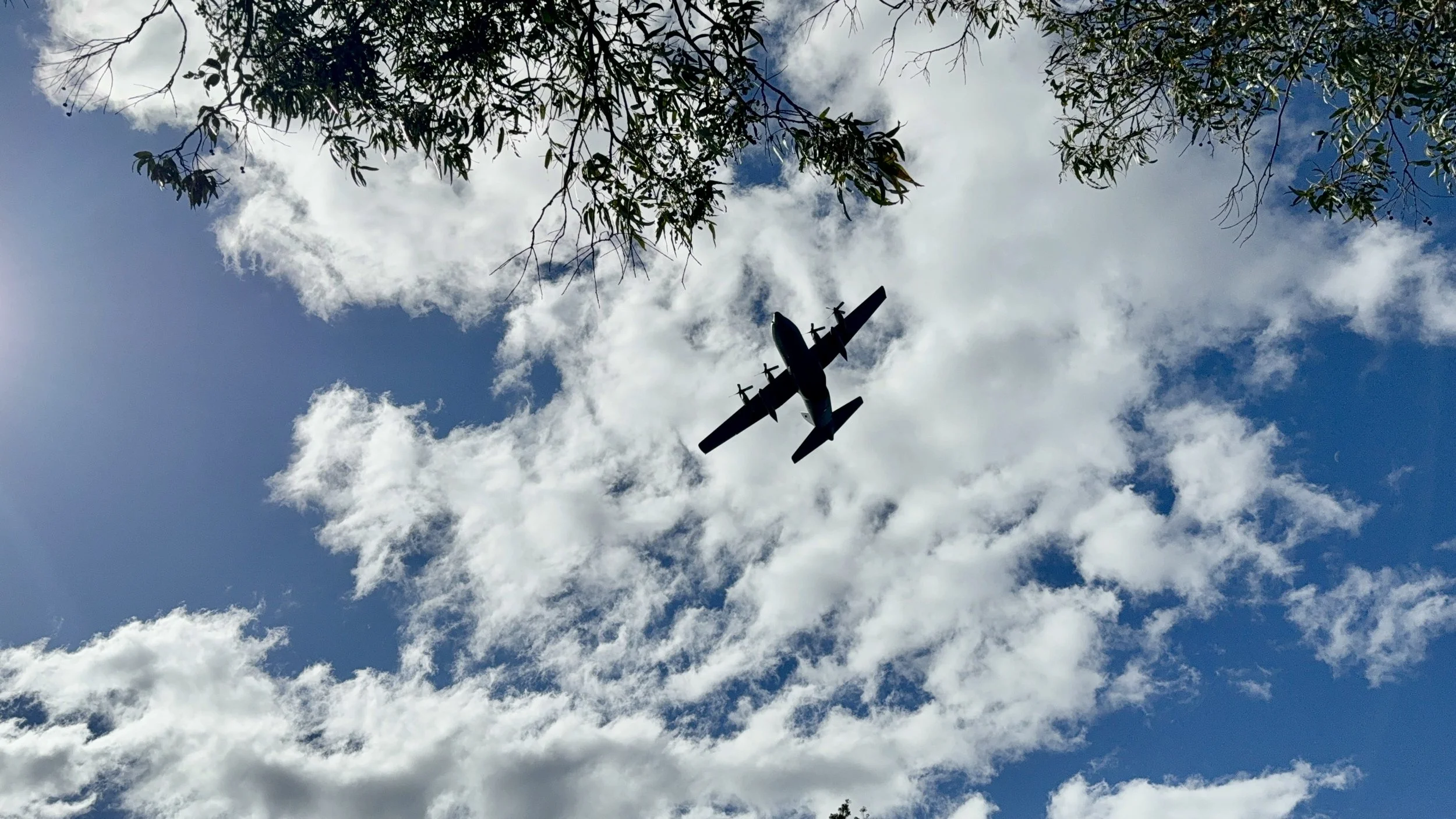Queenstown to Milford Sound: Chasing Beauty in New Zealand’s South Island
Queenstown
I arrived in Queenstown from Sydney, Australia, and even before landing, the scenery had me glued to the window. The airport is nestled among jagged peaks, and as we descended in a smaller aircraft, it truly felt like we were threading a needle between mountains. It was breathtaking—and a little bit nerve-wracking.
Once we landed, I got a crash course in New Zealand’s approach to customs. This country takes its biosecurity seriously, and with good reason. As an island nation with a delicate ecosystem, New Zealand screens all incoming items, especially outdoor gear. Even the dirt on your shoes is subject to inspection. I was asked where I’d been and if I had any equipment that might carry soil, seeds, or plant material. It’s thorough, but it’s all part of their commitment to protecting their incredible landscapes.
After clearing customs, I headed to the taxi queue and met Andrew, a friendly local driver who chatted with me while I located my hotel address. Fun fact: Queenstown, despite its size, has three Holiday Inns. Andrew got me to the right one without any trouble.
The hotel itself was simple and serviceable. My room felt a bit like a college dorm—two twin beds, a couch, a desk, and a small fridge—but it was clean and comfortable. The bathroom, surprisingly, was the nicest part of the space.
After dropping off my bags, I asked the front desk about finding an ATM. They suggested a bus, but it was a nice day, and I decided to walk the two miles into town. The walk followed the edge of Lake Wakatipu, offering peaceful views the entire way.
In town, I stopped by an ATM, then made a quick visit to McDonald’s. For some reason, chicken nuggets have become a small travel ritual for me—it’s oddly comforting to try familiar foods in unfamiliar places.
Next, I made my way to the Skyline Gondola, one of Queenstown’s top attractions. While the town is known for adrenaline-filled adventures like bungee jumping, rafting, and paragliding, I was more interested in the views. The gondola ride up to Bob’s Peak was smooth and scenic, and the lookout platform at the top offered panoramic views of Queenstown and the surrounding mountains. It was a peaceful way to take in the landscape without the need for a harness or helmet.
After soaking in the scenery, I wandered back through town and took the bus back to the hotel. The return trip was just 15 minutes—much quicker than the walk—but I was glad I had done both.
Day 2: A Day Trip to Milford Sound
Milford Sound came highly recommended, so I booked a full-day tour with Cheeky Kiwi Travel. It was an early start, but the journey and the destination were well worth it.
Mirror Lake
The drive to Milford Sound takes about four hours, though we made plenty of scenic stops that made the time pass quickly. As we made our way through Fiordland National Park, we stopped at Mirror Lakes, where the calm waters reflect the surrounding peaks like a mirror. We also paused in Te Anau, where we met a few llamas and our guide picked up lunch for the group.
Fiordland National Park
One of the more memorable stretches of the trip was passing through the Homer Tunnel—a long, narrow tunnel carved straight through the mountains. As we entered, our guide played the Jurassic Park theme, which added a touch of humor and drama. On the other side, we were met with breathtaking alpine scenery, signaling that we were getting close to our destination.
Milford Sound
Arriving at Milford Sound, I could immediately see why it’s considered one of New Zealand’s crown jewels. Towering cliffs rise sharply from the dark water, waterfalls cascade down the rock faces, and the atmosphere feels both serene and dramatic. Though it’s called a “sound,” Milford is actually a fjord, formed by glaciers thousands of years ago.
We boarded a cruise boat with our lunch bags in hand and set out across the water. The views were extraordinary. We passed under waterfalls, glided past seals sunning themselves on rocks, and watched as mist rolled over the cliffs above. It was peaceful and powerful all at once—a place that truly makes you feel small in the best way.
On the way back, our guide made one last impromptu stop. He’s an aviation enthusiast and had heard that three C-130 Hercules military planes were doing a farewell flyover nearby. We pulled over in Mararoa Waimea Ward and watched them soar overhead. It was unexpected and memorable—an added touch to an already full day.
We returned to Queenstown in the evening. I was tired but content. I packed up my things and set an early alarm—Christchurch was next on the itinerary. Queenstown had offered natural beauty, quiet adventure, and a sense of place that lingered long after I left.
Welcome to New Zealand
Mt. Cook
I fell in love with New Zealand almost instantly. As I gazed out of the plane window at the vast expanse of Fiordland National Park, I knew right away that this place was going to stay with me. The jagged mountains, glacial rivers, and deep blue lakes stretched beneath me, framed by a sky so clear it felt almost unreal. The rolling green hills seemed to pulse with life, touching something deep within me in a way few places ever have.
It’s easy to see why so many people come to New Zealand when they need to find themselves or figure something out. There’s something about this land that invites reflection—offering a kind of quiet reassurance, a space where you can sit with your thoughts and just be.
If you're planning a trip here, here are a few things to know before you go:
Visa & Entry Requirements
Travelers to New Zealand are required to obtain a New Zealand Electronic Travel Authority (NZeTA) and pay the International Visitor Conservation and Tourism Levy (IVL).
NZeTA Application Fee:
Mobile App Request: NZD $17
Website Form Request: NZD $23
These fees apply to citizens of visa-waiver countries and are valid for up to two years, allowing multiple entries during that period.
International Visitor Conservation and Tourism Levy (IVL):
Levy Amount: NZD $100
The IVL is charged to most international visitors and is collected at the time of NZeTA or visa application. The funds are used to support conservation efforts and tourism infrastructure in New Zealand.
Total Cost Example:
Applying via Mobile App: NZeTA (NZD $17) + IVL (NZD $100) = NZD $117
Applying via Website Form: NZeTA (NZD $23) + IVL (NZD $100) = NZD $123
Expect to Be Outdoors—A Lot
New Zealand is an adventurer’s paradise. Whether it’s hiking, kayaking, mountain biking, bungee jumping, skydiving, paragliding, or glacier trekking, nature is at the heart of almost every experience here.
What to Pack:
Comfortable shoes
Waterproof gear
Hat, sunscreen & sunglasses
Snacks & a sense of adventure
The Weather Can Be Unpredictable
Seasons in New Zealand are flipped if you're coming from the Northern Hemisphere—summer runs from December to February, and winter from June to August. But no matter when you visit, the weather can change fast.
Always pack layers
Be prepared for rain and strong sun
Check local weather updates before heading out
Currency & Costs
Currency: New Zealand Dollar (NZD)
Prices can be high, especially for food, fuel, and activities
Credit and debit cards are widely accepted, but it's good to carry cash in smaller towns
If you're on a budget, take advantage of free natural attractions like hikes, beaches, and scenic drives
Getting Around
Public transport is limited outside of major cities, so renting a car or campervan is the best way to explore.
They drive on the left
Roads can be winding and remote—drive carefully
In cities, buses and rideshares like Uber are available, but self-driving offers the most freedom
Culture & Etiquette
The Māori Culture is a Vital Part of New Zealand
New Zealand isn't just about stunning landscapes; it has a rich cultural heritage. Take time to learn about the Māori people, their traditions, and their language.
A simple “Kia ora” (hello) is a great way to show respect
Tipping is not expected but appreciated for great service
New Zealanders (Kiwis) are friendly and casual but value politeness and respect
It’s One of the Safest Places You’ll Visit
New Zealand consistently ranks as one of the safest countries in the world. The biggest dangers you’ll face?
Sandflies (carry insect repellent!)
Sudden weather changes—especially in the mountains
Underestimating the power of nature—always check conditions before outdoor activities
Slow Down and Take It In
New Zealand isn't a place to rush through. Some of the best moments happen when you just sit back, inhale the clean are and take in the view.

